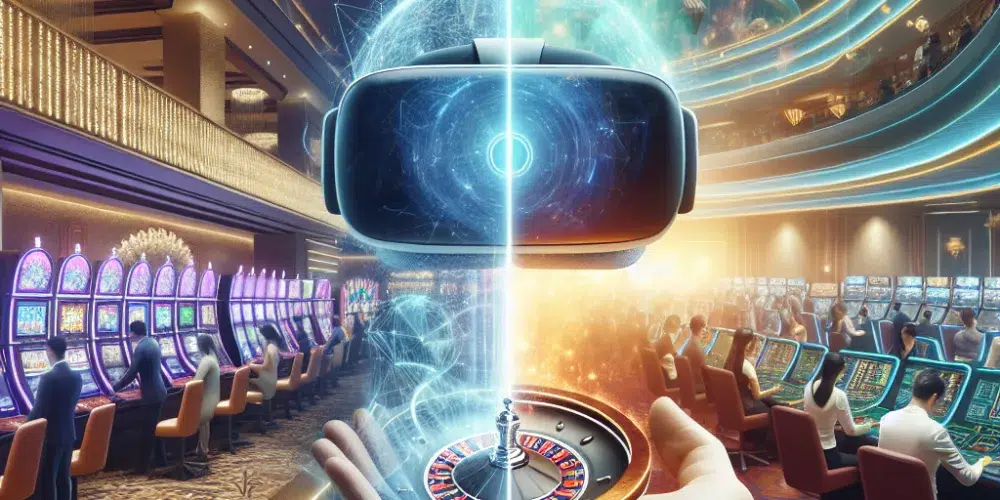In recent years, the gaming industry has witnessed an extraordinary evolution that is reshaping the very concept of casino entertainment. Among the burgeoning trends, the integration of Virtual Reality (VR) in traditional casino games stands out, with VR Roulette emerging as a frontrunner. This innovative approach not only enhances the gaming experience but also extends the boundaries of what traditional casinos offer.
A New Dimension of Gaming
VR technology has successfully infiltrated various sectors, from education to healthcare, demonstrating its versatility and broad appeal. In the casino industry, VR Roulette introduces players to a 360-degree digital world where the thrill of the game is amplified by a high-definition, immersive environment.
Enhanced User Experience
The key draw of VR Roulette lies in its ability to provide a deeply engaging experience that replicates the excitement of a live casino without the need to leave one’s home. Players wear VR headsets to enter a fully realized casino, complete with detailed interiors and interactive elements. This virtual setting not only captures the essence of a real-life roulette table but also enhances it with unique, customizable features such as different themed environments and interactive game tables.
Social Interaction Redefined
Another significant aspect of VR Roulette is its social impact. This platform does not isolate players but instead offers a communal experience that mimics the social dynamics of a traditional casino. Players can interact with each other and the dealer within the virtual space, fostering a sense of community and enhancing the overall experience.
Technology Behind the Trend
The sophistication of VR Roulette is powered by advanced VR software and hardware. High-resolution visuals, responsive motion sensors, and real-time sound effects all come together to create an authentic and engaging atmosphere.
Software Innovation
Developing VR Roulette requires intricate software that can handle complex interactions and provide a seamless user experience. The software is designed to manage detailed environments, realistic physics in wheel rotation and ball movements, and interaction capabilities for players within the game.
Hardware Accessibility
Initially, the cost and accessibility of VR hardware posed a challenge to widespread adoption. However, with the continual advancements in technology and reduction in prices, VR headsets are becoming more accessible to the average consumer, paving the way for broader acceptance of VR Roulette and similar experiences.
The Future of VR Roulette and Gaming
The potential for VR Roulette extends beyond just gameplay enhancements. It opens up new avenues for marketing, customer engagement, and even educational tools within the gambling industry.
Innovative Marketing Platforms
Casinos are beginning to use VR Roulette not only as a game but as a marketing tool. Through VR, they can offer virtual tours, special promotions, and preview events that introduce players to the casino environment before they visit in person or invest money.
Educational Opportunities
For new players, the prospect of learning a game in a crowded and bustling casino can be daunting. VR Roulette offers a unique opportunity for novice players to learn the game at their own pace, within a controlled environment, reducing the intimidation factor and potentially increasing their confidence in real-life gambling scenarios.
Regulatory and Security Considerations
As with any emerging technology, VR Roulette faces scrutiny regarding regulatory compliance and security. Ensuring the integrity of the game and protecting user data are paramount. Casinos and software developers must work closely with regulatory bodies to establish standards and practices that safeguard participants’ interests.
In summary, VR Roulette represents a significant shift in casino gaming, offering players an exciting, immersive, and interactive experience. As VR technology continues to evolve, it promises to expand the horizons of traditional gambling practices, potentially transforming the casino industry in unprecedented ways. This trend not only highlights the capacity for innovation within the gaming industry but also challenges other sectors to reconsider how immersive technologies can enhance the user experience.

David Garato is a luminary in gaming journalism, renowned for peeling back the curtain on the gaming world with his witty and insightful commentary. A decade into weaving stories from the pixelated edges of indie games to the expansive universes of AAA titles, David’s work is a thrilling blend of analysis and adventure. When not writing, he’s live-streaming, sharing his gaming exploits with an engaged and growing audience. David doesn’t just write about games; he lives them, making him a trusted guide in the gaming community.


